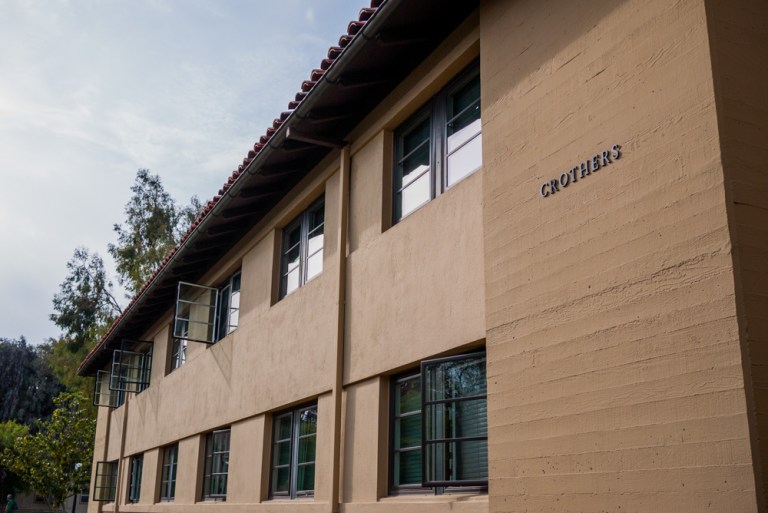The opinions expressed in this piece are those of the writer and in no way represent the views of ResEd or the University.
Last month, a federal class-action lawsuit was filed against Stanford by current and former Stanford students claiming the University systematically mistreats students suffering from mental health issues, according to the Fountain Hopper.
But this expands beyond the treatment of students hospitalized for suicidal behavior.
I’m currently an Academic Theme Associate in Crothers. I also have mental illness. I faced immense discrimination when trying to return to Crothers as an RA next year, leading to the deterioration of my mental, emotional and physical health.
At the end of fall quarter, when inquiring about a disability accommodation, I revealed to my Resident Fellows that I am medicated and seeing a therapist for my mental illness. Up until that point, I thought I had a great relationship with my RFs. They even told other staff members they were impressed with my work, and several of us were under the impression I would return automatically.
Upon meeting with them, it was apparent that I was wrong. In the first meeting, they raised doubts about my ability to handle disciplinary issues with residents, despite my track record of being more than capable of resolving such issues. In a second meeting, they told me to meet with my therapist to make sure I was capable of the job because “having divorced parents could lead to trauma that may make it difficult to be an RA.”
During this time, they met with other current staff members and disclosed my private health information. They stereotyped me when discussing my health with a current RA, saying I have “abandonment issues” and portraying me as unstable based on hearsay that was unsubstantiated by my actual work in the dorm and relationships with residents.
In a third meeting, I gave the RFs a letter from my therapist saying I was excelling on my treatment and more than capable of performing the duties of an RA. Despite that, I was the only staff member who was trying to return who wasn’t automatically rehired. Instead, I was forced to go through the full formal application process, complete with a traditional second round interview with the RFs, something no other current staff member had to do. This came after they had previously told me I wouldn’t have to be interviewed because they “already knew me.” For other staff members who automatically returned, it was as simple as telling the RFs they wanted the job and they had it.
Reaching out and getting the help I needed wasn’t easy, but I’ve come a long way. I’ve learn to cope with my mental illness, but in Crothers it wasn’t viewed that way. I was constantly worried that my RFs would see me on a bad day and feel justified in labeling me “unstable.”
I was engulfed by anxiety and depression, but couldn’t reach out for support because I needed to “hide it better,” according to my RFs. This toxic living and working environment caused my grades to drop, and I was diagnosed with stress-induced gastritis, leading to excruciating pain and missed classes.
I spoke with ResEd leadership, and they are investigating my complaint. It’s been a month, and I have still not heard back about the status of the investigation or its findings. I also filed a claim with the U.S. Equal Employment Opportunity Commission, and hope to work with the University through mediation to find an institutional solution to ensure no other student is treated the way that I was.
Despite my complaints and the ongoing investigation into their behavior, one of the RFs is receiving a Dinkelspiel Award at this weekend’s commencement ceremony and being honored “for his profound and lasting contributions to the quality and richness of the undergraduate experience.”
Instead of commending those who promote an environment where stigma around mental illness thrives, Stanford and ResEd should work to address the complaints from me and other students across campus.
Discriminatory practices permeate the system from the way RFs hire their staff to the way RDs treat students in distress. This behavior has terrible, painful consequences for students in fragile states looking for support.
When these students reach out for support, they should trust ResEd to have their best interests at heart, not to manipulate the situation and use the student’s disabilities against them.
It starts by viewing students with mental illness as what we are: people.
Instead of forcing students to leave their residencies for their alleged “disruptive behavior,” use it as an opportunity to start a discussion about mental illness and how dorm communities can better support each other through the highs and lows of college.
Instead of treating potential staff members as incapable because of their mental illnesses, utilize them as people who have acknowledged that things aren’t always okay and have sought help. Judge us based on our work, not on stereotypes and biases against people with mental illness.
We can do better. We need to do better.
The Daily has allowed the author of this op-ed to remain anonymous here to keep sensitive personal information private online from potential employers.
